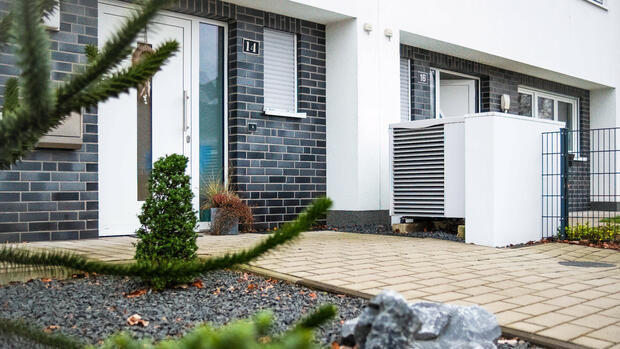In addition to heat pumps, the heating law now also allows hybrid or pellet heating systems.
(Photo: IMAGO/Robert Poorten)
Berlin The deliberations on the heating law are entering the decisive phase. The Federal Ministry of Economics has cast the change requests that the government factions had agreed on in legal form. This significantly increases the chances that the law can be passed in the coming week.
The FDP in particular had demanded improvements. FDP parliamentary group leader Christian Dürr said that a practicable law would be introduced that would not overwhelm anyone. “With the new version, we are implementing what the coalition has agreed politically: no bans, no encroachments on property – but lots of technologies instead,” he says.
The SPD parliamentary group deputies Verena Hubertz and Matthias Miersch said: “We have succeeded in making changes to the proposals of the relevant ministries.” Climate protection and social balance now go hand in hand.
The deputy group leaders of the Greens, Julia Verlinden and Andreas Audretsch, explained that the way was now “free for further proceedings”.
The Greens politicians announced that the Bundestag Committee on Climate and Energy will hold another hearing with experts at the beginning of next week in order to be able to discuss in detail the specific adjustments that the ministry is now giving the government factions as a formulation aid . This ensures comprehensive consultation of the coalition proposals.
In the future, heating systems other than heat pumps will also be permitted
The amendment to the law is expected to be passed by the Bundestag by the end of next week. Then the parliamentary summer recess begins.
>> Read here: The heating law costs citizens up to 9.2 billion euros every year
In essence, the amended Building Energy Act (GEG) should regulate that from 2024 only heating systems that are operated with at least 65 percent renewable energies may be installed. However, there are exceptions. In the Ministry’s formulation aids for the traffic light fractions, the subject of heating networks and municipal heating planning in particular takes up a lot of space. According to this, the regulations on heating exchange should only come into effect when there is a municipal heating plan.
In addition, there should be different ways to meet the 65 percent requirement. In addition to a heat pump, direct electricity heating, hybrid heating or heating based on biomass such as wood and pellets may also be installed.
The traffic light coalition of SPD, Greens and FDP had been arguing for weeks about the right way to advance the heat transition in the building sector. This is considered central to achieving climate policy goals and becoming less dependent on imports of fossil energy. According to the Federal Ministry of Economics and Technology, more than a third of the total energy requirement in Germany is used to heat buildings and provide hot water.
More: These are the key aspects of the Heating Act
